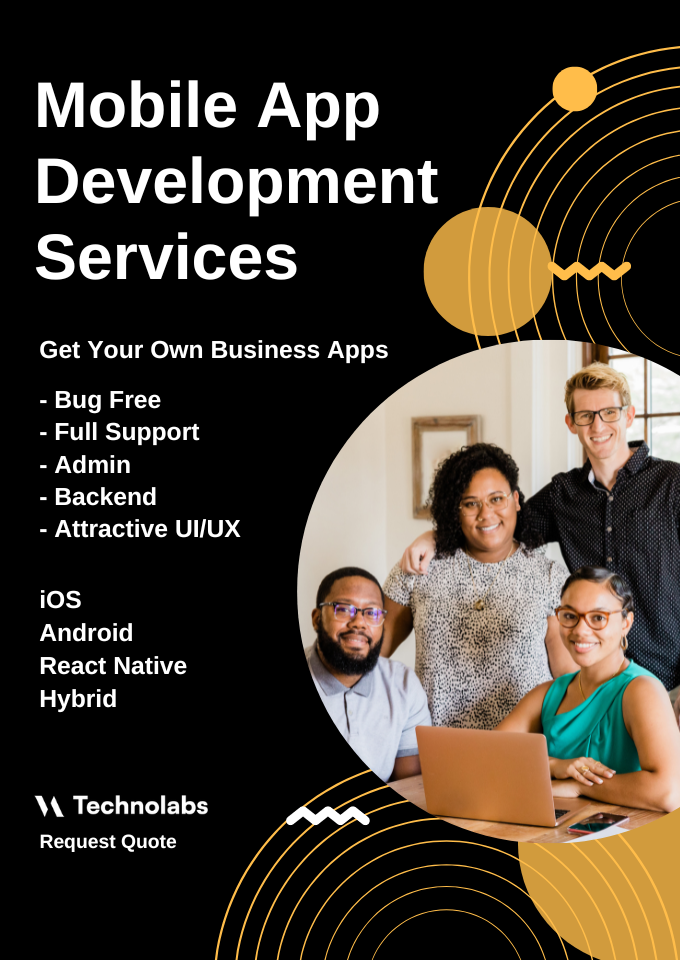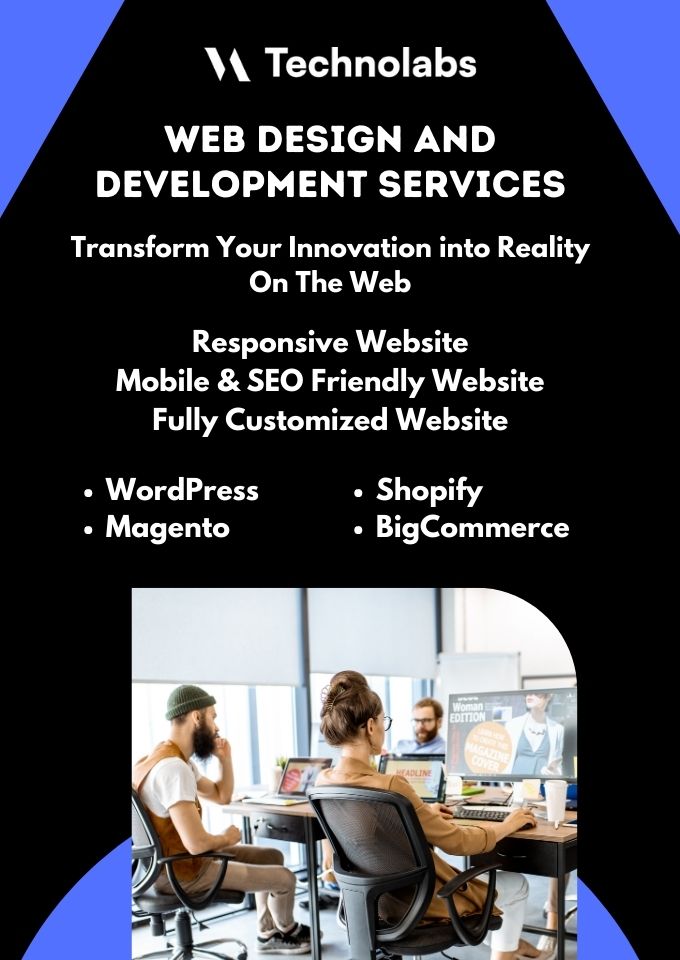A Complete Guide on Healthcare App Development

A Complete Guide on Healthcare App Development
In the rapidly evolving landscape of technology, the healthcare industry is undergoing a transformative journey with the integration of mobile applications. Healthcare app development is a pivotal solution, empowering patients and healthcare providers to enhance the overall healthcare experience. I will guide you through the comprehensive landscape of healthcare app development, shedding light on its significance, challenges, and key considerations for building successful healthcare applications.
Chapter 1: The Significance of Healthcare App Development
1.1 Evolution of Healthcare Technology
The evolution of healthcare technology has been marked by transformative innovations. From electronic health records (EHR) to telemedicine, the sector has witnessed significant progress. Healthcare app development emerges as the latest frontier, promising to reshape the industry by providing accessible, efficient, and patient-centric solutions.
1.2 Addressing Healthcare Challenges
Healthcare apps aim to tackle some of the most pressing challenges in the industry. These challenges include the need for improved patient engagement, streamlined communication between healthcare professionals, efficient management of medical data, and enhanced accessibility to healthcare services. In this chapter, we will explore how healthcare apps are positioned to address these challenges head-on.
Chapter 2: Types of Healthcare Applications
2.1 Patient-Centric Apps

Patient-centric healthcare apps focus on empowering individuals to actively manage their health. We will delve into the features and functionalities of these apps, including appointment scheduling, medication reminders, and real-time access to personal health records.
2.2 Telemedicine Apps

The rise of telemedicine has been accelerated by healthcare apps. I will explore the role of telemedicine apps in providing virtual consultations, remote monitoring, and improving the overall accessibility of healthcare services.
2.3 Healthcare Provider Apps

Healthcare provider apps cater to the needs of medical professionals, offering tools for electronic health records, communication platforms, and decision support systems. We will examine how such apps enhance the efficiency of healthcare delivery.
Chapter 3: Key Features and Functionalities
3.1 User Authentication and Data Security
Ensuring the privacy and security of sensitive health data is paramount. I will emphasize the importance of robust user authentication mechanisms and advanced data encryption techniques to safeguard patient information.
3.2 Electronic Health Records (EHR) Integration
Integration with EHR systems streamlines information flow between healthcare providers and patients. I will discuss the seamless incorporation of EHR into healthcare apps, enhancing the accuracy and accessibility of medical records.
3.3 Real-time Communication
Effective communication is critical in healthcare. I will explore the incorporation of real-time messaging, video calls, and other communication features to facilitate seamless interaction between patients and healthcare professionals.
3.4 AI and Machine Learning in Healthcare Apps
The integration of artificial intelligence (AI) and machine learning (ML) brings predictive analytics, personalized treatment plans, and diagnostic support to healthcare apps. I will delve into the transformative potential of AI in revolutionizing healthcare.
Chapter 4: Challenges in Healthcare App Development
4.1 Regulatory Compliance
Navigating the complex landscape of healthcare regulations is a significant challenge in app development. I will provide insights into the key regulatory frameworks, such as HIPAA (Health Insurance Portability and Accountability Act), and discuss strategies to ensure compliance.
4.2 Data Interoperability
Interoperability issues arise due to the diversity of healthcare systems and data formats. I will explore the challenges associated with data interoperability and suggest solutions to create a seamless exchange of information between different healthcare platforms.
4.3 User Adoption and Engagement
Despite the potential benefits, user adoption can be a hurdle for healthcare apps. I will discuss strategies for increasing user engagement, addressing concerns about data privacy, and ensuring a positive user experience.
Chapter 5: Steps in Healthcare App Development
5.1 Define the Purpose and Goals
I will emphasize the importance of clearly defining the purpose and goals of the healthcare app. Whether it is improving patient outcomes, enhancing communication, or optimizing healthcare processes, a well-defined objective is crucial for success.
5.2 Conduct Market Research
Understanding the target audience, competitors, and market trends is vital. I will guide you through the process of conducting thorough market research to identify opportunities and potential challenges in the healthcare app development landscape.
5.3 Choose the Right Technology Stack
Selecting the appropriate technology stack is a critical decision in healthcare app development. I will provide insights into choosing the right programming languages, frameworks, and databases to ensure scalability, security, and optimal performance.
5.4 Design an Intuitive User Interface
The user interface (UI) plays a pivotal role in the success of healthcare apps. I will explore the principles of designing an intuitive and user-friendly interface that caters to the diverse needs of both patients and healthcare professionals.
5.5 Develop a Secure Backend Infrastructure
Security is non-negotiable in healthcare app development. I will discuss the importance of building a secure backend infrastructure, including server configurations, data storage, and implementing encryption protocols.
5.6 Integrate with Healthcare Systems
Seamless integration with existing healthcare systems, such as EHR platforms and laboratory information systems, is crucial for the success of healthcare apps. I will provide insights into the challenges and strategies for effective integration.
5.7 Test Rigorously
Quality assurance is paramount in healthcare app development. I will outline the importance of rigorous testing, including functional, security, and usability testing, to ensure the reliability and performance of the app.
5.8 Obtain Regulatory Approvals
Navigating the regulatory landscape is a crucial step. I will guide you through the process of obtaining necessary approvals, adhering to regulatory standards, and ensuring compliance with healthcare regulations.
5.9 Launch and Monitor
The launch is just the beginning. I will discuss the post-launch phase, emphasizing the importance of monitoring app performance, gathering user feedback, and implementing updates to continuously enhance the app.
Chapter 6: Future Trends in Healthcare App Development
6.1 Artificial Intelligence and Predictive Analytics
I will explore the future integration of AI and predictive analytics, envisioning personalized treatment plans, early disease detection, and more accurate diagnostics.
6.2 Blockchain in Healthcare
The potential of blockchain technology in healthcare is vast. I will discuss how blockchain can enhance data security, streamline transactions, and improve interoperability in healthcare systems.
6.3 Wearable Technology Integration
Wearable devices are becoming increasingly popular. I will explore the integration of wearable technology with healthcare apps, enabling continuous monitoring of vital signs and promoting proactive healthcare.
6.4 Virtual Reality (VR) in Healthcare
The immersive experience offered by VR has promising applications in healthcare. I will discuss how VR can be used for medical training, pain management, and therapy.
Conclusion
In this comprehensive guide, I have provided a thorough exploration of healthcare app development. From the significance of these applications to the challenges faced in their development, and the key steps to ensure success, this guide serves as a valuable resource for anyone venturing into the dynamic field of healthcare app development.





